‘People find it reassuring that the Tories care only about power’: Tony Blair on how Labour can win
The former prime minister answered students’ questions at King’s College London and revealed what he thinks is the key to beating the Tories. By John Rentoul

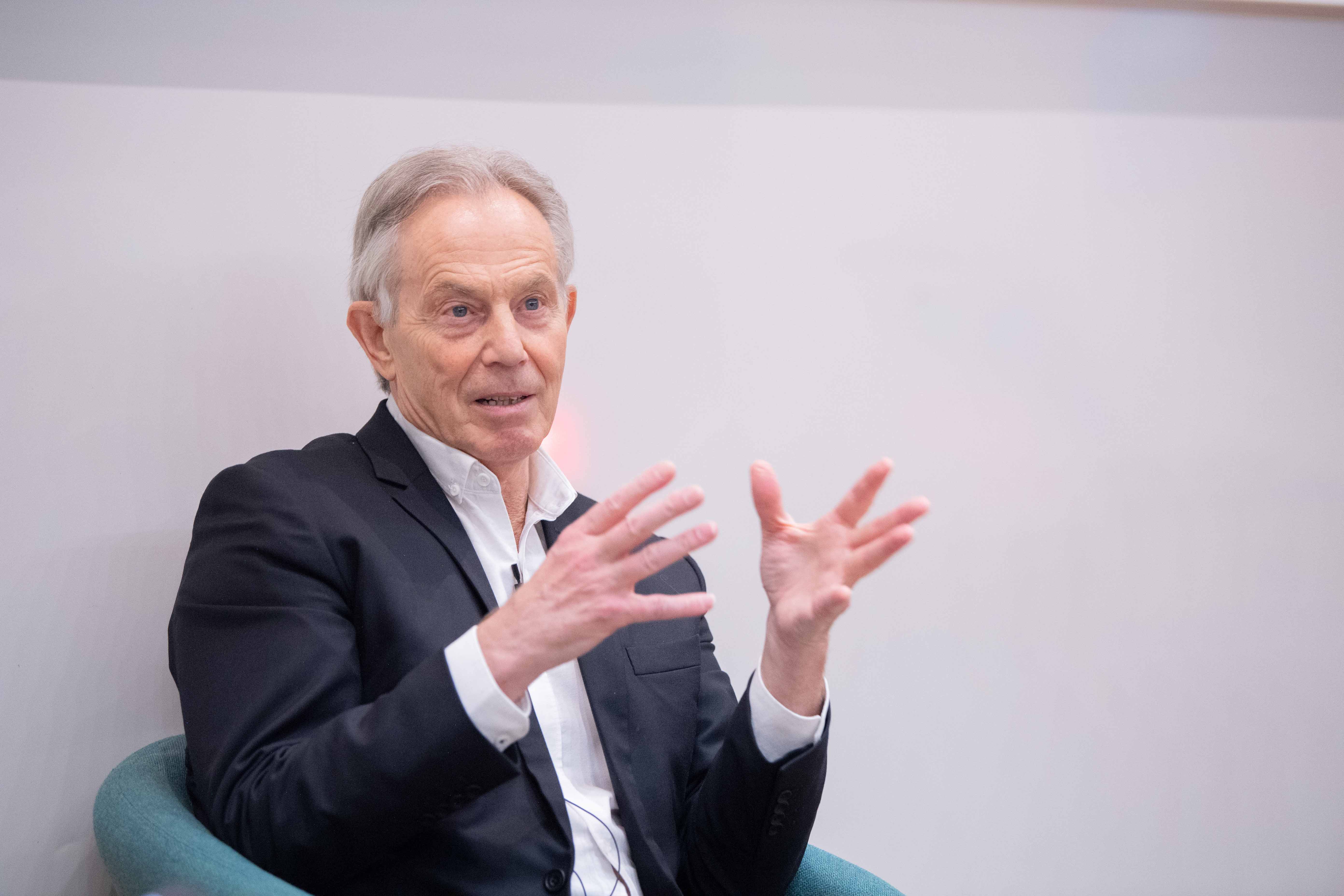
Tony Blair was the special guest for the classes I teach at King’s College London with Dr Michelle Clement, Dr Jack Brown and Professor Jon Davis. He said: “It is a very weird thing to be studied.” And he made a face when he was introduced as “Sir” Tony: “I wince, but there it is. I’m very happy with it. But, you know... ”
We do know about the petition against his knighthood that attracted a million signatures, but he didn’t elaborate, moving straight on to taking the students’ questions.
One asked how he would win an election for Labour today. “The first thing is to realise that the psychology of the country towards Labour and the Conservatives is different,” he said. “Unfortunately, if you look back on, what, 120 years of Labour’s existence, we’ve been in power for less than a third, roughly a quarter, of that time. And half of it was New Labour, and there are parts of the Labour Party that are not too keen on remembering that part.
“So you can’t say Labour’s been a successful political project, really. Because if you take the 100 years before that, the Liberal party – which was then the alternative to the Conservatives – I think they were roughly equal in the time they spent in government.
“Personally, I think the big defect at the birth of Labour was to be tied to organised labour rather than to be broadly progressive. The separation of that liberal tradition of progressive politics and the Labour tradition is the thing I tried to cure in New Labour, but after I left people went back to the traditional roots of Labour, which I think was – and is – a mistake.
“The difference that makes to the psychology of the country towards the two parties is that the country looks at the Tories and thinks, ‘They only care about power.’ Now, if you’re Labour, you think, ‘That’s really bad; really unprincipled.’ But the public finds it curiously comforting. Because they think, ‘They only care about power, so they’re probably going to try to please me most of the time.’ So what we think is a point of criticism is really a point of reassurance.
“Now, when you come to Labour, Labour always thinks Labour’s problem is whether it’s principled enough. But the country knows we’re principled – oh yes, we’ve got those principles. And what they think is, ‘Yes, if it comes to the principles and me, they might just choose the principles.’ So what we find comforting they find puts them on guard.”
His answer to this problem was to “re-establish that progressive coalition, Labour and Liberal, to create very openly a big tent” with a forward-looking programme. Hence his enthusiasm for Labour harnessing the technology revolution, which he mentioned in a recent speech: “It’s future-oriented, it’s youth-oriented, it’s business-oriented, and it allows you a big programme where it’s obvious that it’s only if government is a partner that it’s going to work.”
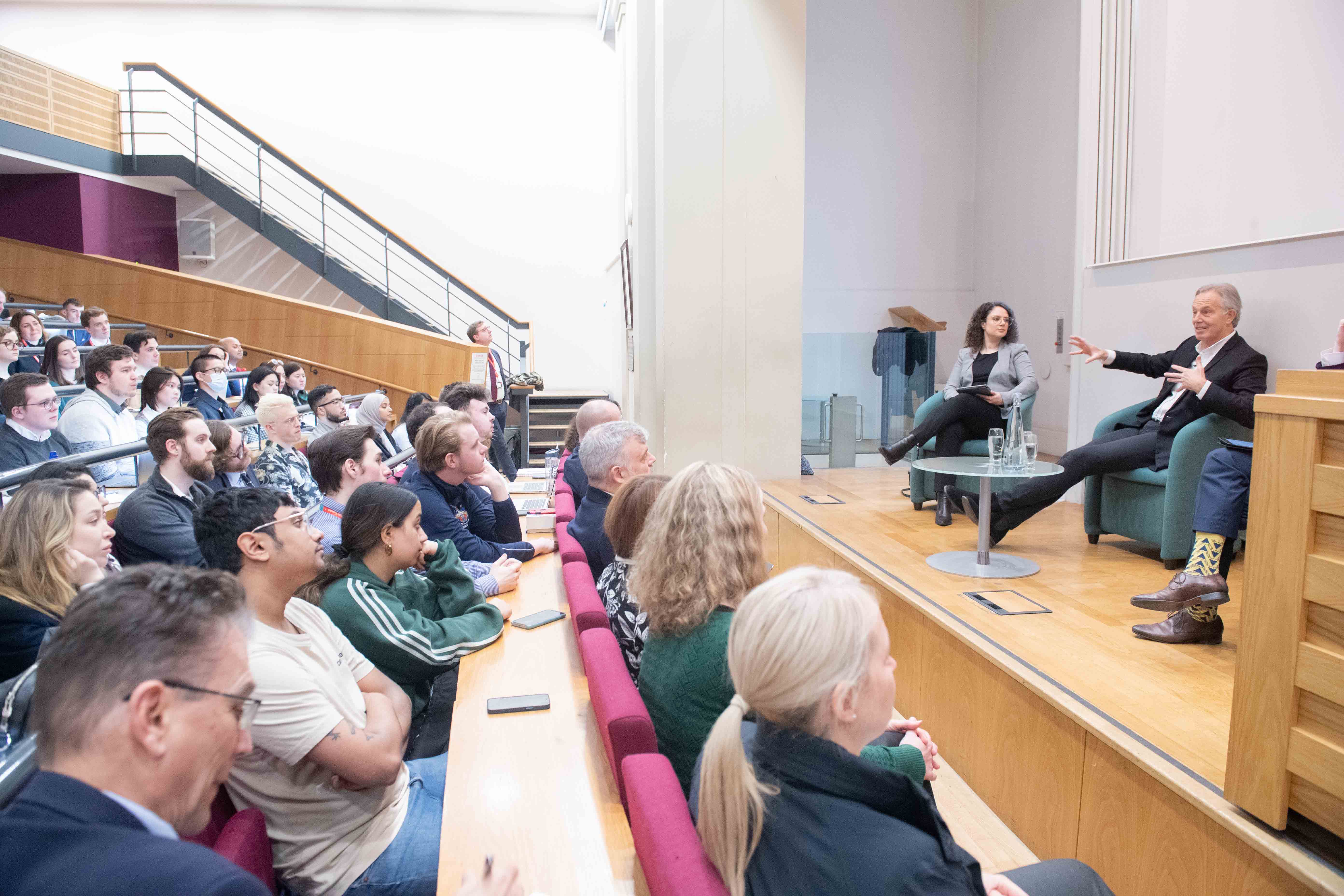
In this, clarity is all. “Because otherwise the Tories are going to come along and outmanoeuvre you, and suggest that you may do a whole lot of things the public doesn’t like. I’ve seen this so many times: the Tories become really unpopular, Labour ends up thinking it’s going to win, you get a few months out from the election, the media starts ramping up for the Tories, the public think, ‘Yeah, I’m not sure, you know?’ and they go into the privacy of that polling booth and – oh – it’s another Tory government.”
For that reason, “you need in addition to play defence carefully”, he said. “The Tories have a whole series of populist riffs that serve them very well. It might be on immigration; now it’s increasingly on things like trans rights or the so-called culture wars. If you want to win, you’ve got to block off the routes of attack on that. And you can’t have any dubiety.
“If people think you’re not solid on defence, you’re not solid on law and order, you’re not in a sensible place on these culture questions, you don’t recognise that there have got to be rules and order around immigration – yes, I happen to believe immigration is a good thing for the country – but if you’re in a vulnerable position on those things, you’re just going to get slammed.”
You build out from the centre, especially if you’re a progressive party, because if the populism of the right meets the populism of the left, the populism of the right wins
He said that he thought Sir Keir Starmer was “doing a really good job”, but that he has a bigger task ahead of him than he, Blair, faced. “I took over in 1994, after Neil Kinnock and John Smith, both of whom had made major changes in Labour; Keir’s at the equivalent of taking over after 1983. So it’s a much tougher thing, but on the other hand politics moves faster today.
“For Labour right now – and I think Keir does understand this – when you’ve done something as seismic as saying Jeremy Corbyn should be prime minister, it’s got to be clear that that is over.”
He was open about his failure to see Corbyn coming: “When I was in government, Nigel Farage and Jeremy Corbyn were fringe figures. If you’d said to me when I was prime minister, ‘These are the two guys who are going to create big waves in British politics,’ I would have said, ‘What?’ I literally would have thought you were living on a different planet – and it turns out that I was.”
He recalled that “someone did have a conversation once about withdrawing the whip from Jeremy Corbyn” with him when he was prime minister (it was Hilary Armstrong, his chief whip). Blair said he asked: “Why?” And the reply was: “He’s been voting against the government all this time.” Blair said: “I thought: ‘Yeah? I don’t really mind.’”
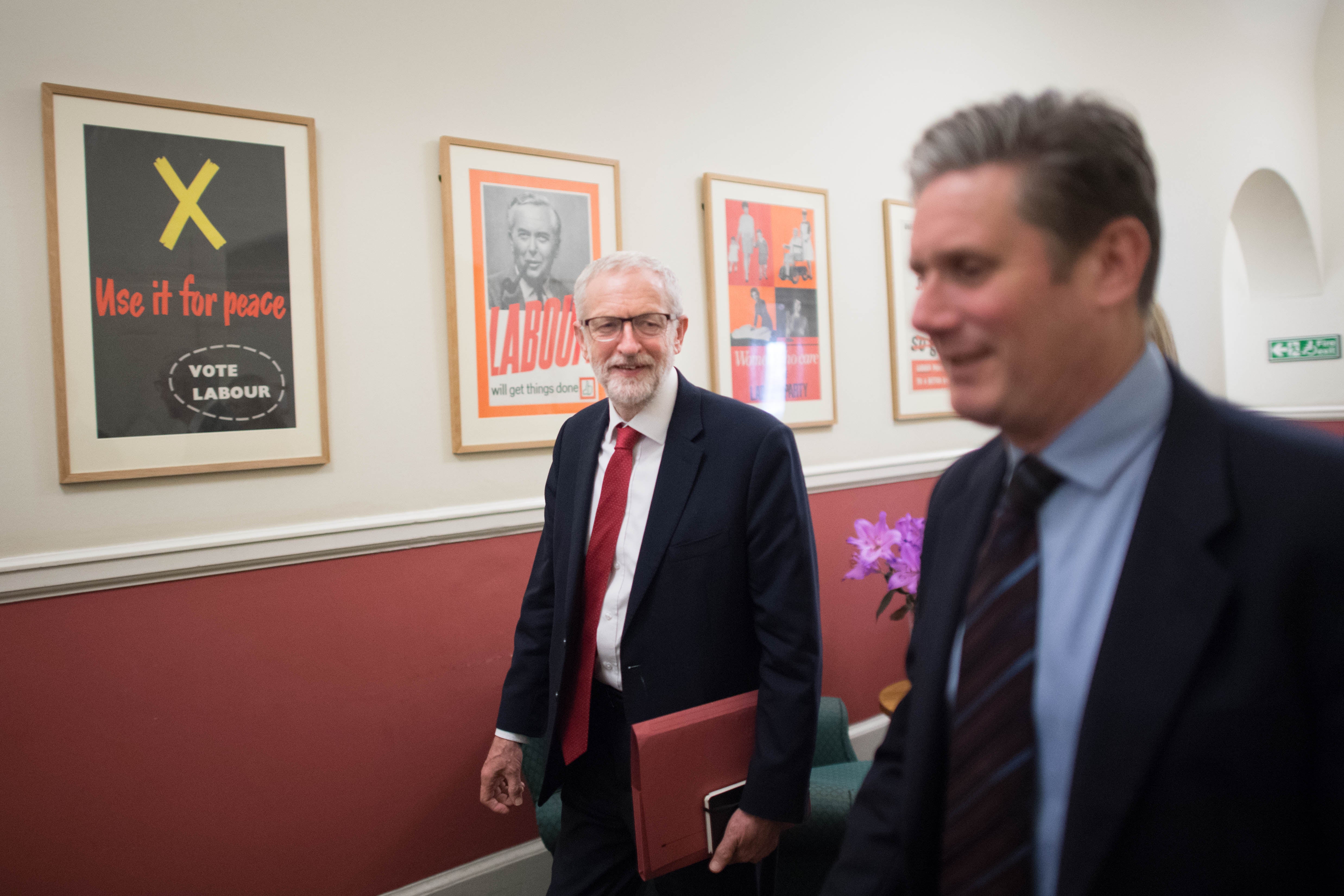
Since then, the world has changed, but Blair insisted that the essential New Labour truths remained valid. He cited the success of Emmanuel Macron in France and of Joe Biden in the US as evidence: “You build out from the centre, especially if you’re a progressive party, because if the populism of the right meets the populism of the left, the populism of the right wins.
“The confusion in a lot of people’s minds in the Labour Party is they think, when you say that you’re going back to the policies of New Labour, ‘Well, the whole world’s different from 25 years ago.’ So the policies aren’t the same, but the basic pitch – forward-looking, modern, sensible, in the mainstream of politics, all those things that are hallmarks of what we tried to create with New Labour – are still – well, put it like this: we’d be in a much better position if it was clear that that’s where we are.
“The centre is still the best place; it is where the public responds. If you look at the polling this is very clear, and we just need to recognise that the centre doesn’t shift, but the context in which the centre operates shifts in shifting times.”
He was asked about the day, 25 years ago next month, when he became prime minister, and how he had learned the skills of government. “The thing that’s really weird about politics is [that] in no other walk of life would you take someone who’d had no experience of government,” he said. “The first and only job I ever had was prime minister. I mean, if you’re going to do it that’s quite a good place to start, but the point is, in no other walk of life would you do that.
“If you were owning Manchester United, you wouldn’t say, ‘We’re not going to have an established manager, just: which fan cares most? Yes, you: you’re going to manage the team.’ You would think that was insane.
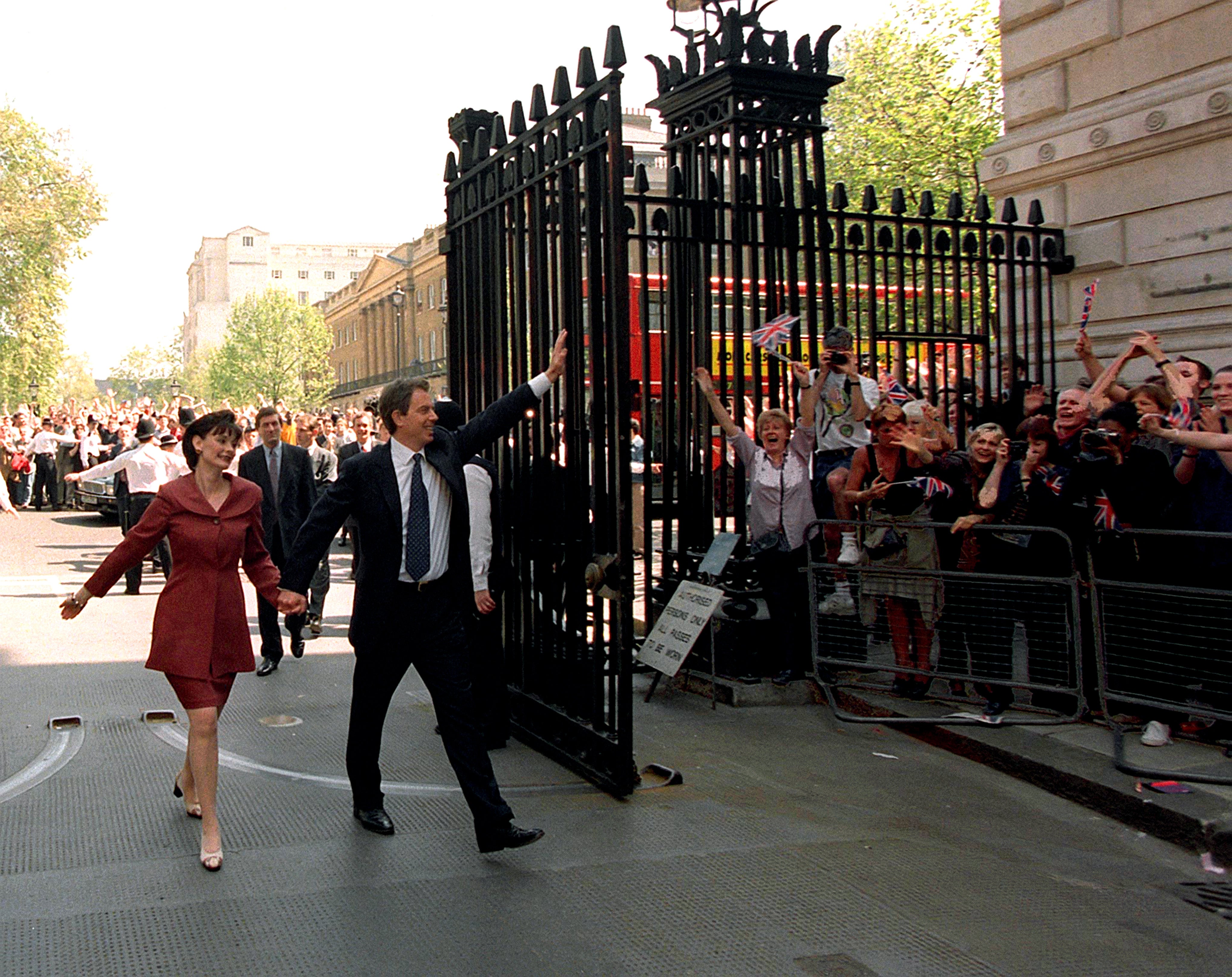
“When you come in, you don’t have the experience. When I first came in in my first term, I just thought, if you beat the system harder, it can work better – and the truth is it did work more effectively when you beat it harder, to an extent – but if you stopped beating it, it stopped working harder.
“So in the second term we changed the way that government worked, and a lot of what my institute does now around the world is focused on this question of how you structure a government, in reference to what we did in government, which is [that] in that second term we created a delivery unit that is now replicated in many parts of the world.
“We had a strategy unit, a delivery unit, a policy unit, and communications. We tended to focus on core things that we believed absolutely had to get done, and how we got a different culture into the public service of implementation and delivery.
“That change in the second term was extremely important. It allowed us to make more radical reform in health, education and criminal justice, and at the same time as post-9/11, my second term very quickly became dominated by foreign policy – or not dominated, exactly, but a whole dimension that was immensely important.
“We do this in different countries around the world today. I think there is a science of governing; there are rules to governing, just as there are rules for leadership. And I think it is important that people who are in positions of government study them, because I can tell you, the hardest thing in government is getting anything done.
“The great irony of government is by the time you’ve got the hang of it, they throw you out.”
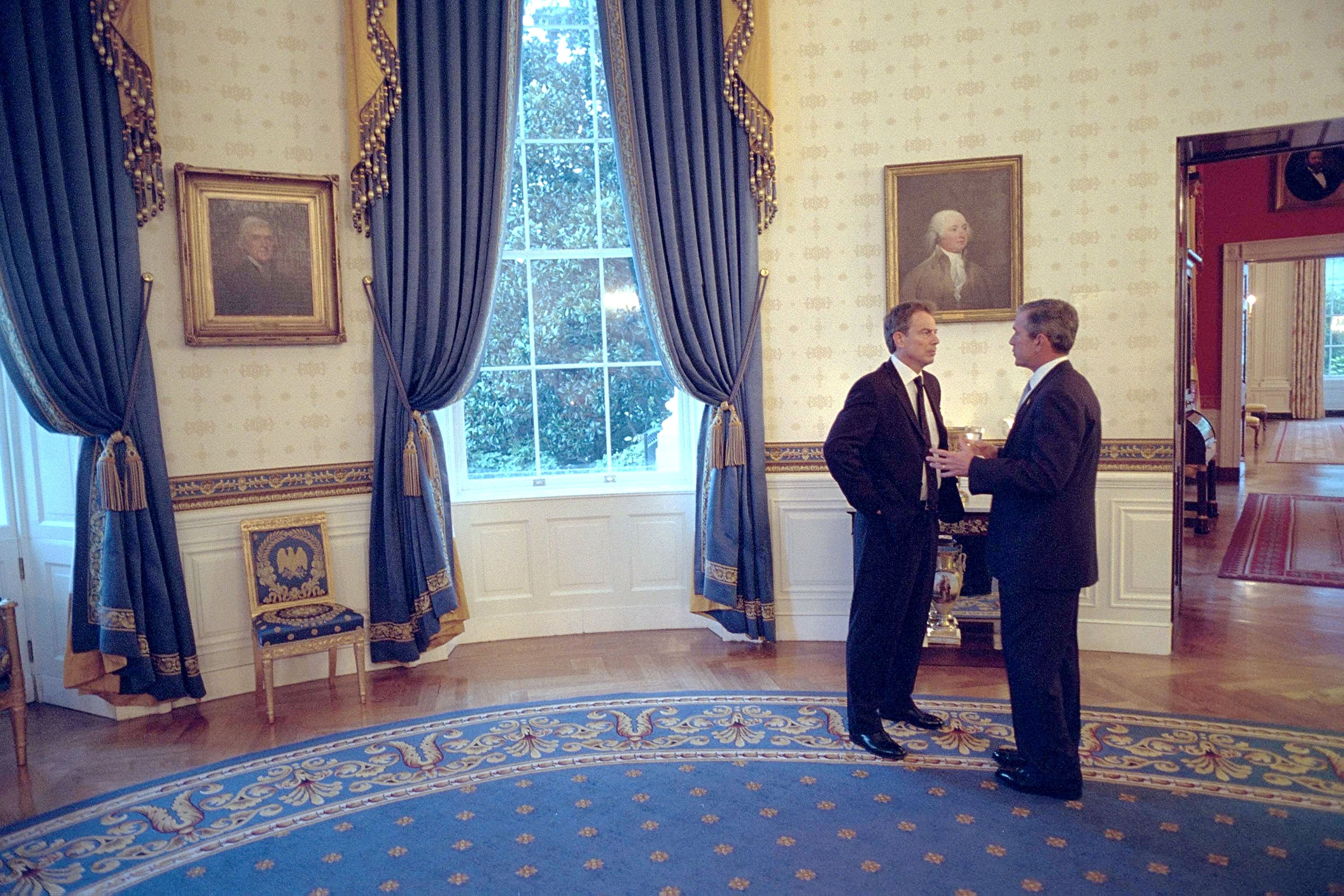
On the other hand, Blair admitted that his lack of experience had been an asset in dealing with the Northern Ireland peace process. It was, he said, the only benefit of “the slightly hubristic tendency when you come into government with a big majority”.
He revealed that John Prescott, the deputy Labour leader and deputy prime minister, had warned him not to spend time on Northern Ireland: “If I’d sat down and thought about it rationally, I would have said: ‘I’m not going near that one; it’s absolutely hopeless.’ I remember John Prescott saying to me: ‘There’s no way you’re going to do that one; don’t touch it; it’s nothing but downside.’ And I was absolutely determined that we were going to do it.
You get a lot of people who are big political thinkers, and that is necessary and important, especially in government, but you also need people who are just kind of operators
“We were enormously helped because we were in a moment of time where our relationship with the Republic of Ireland had become much warmer. We were both in Europe together – one of the reasons why Europe is so important for Britain. There was a ‘new generation’ feel. Bertie Ahern [the Irish prime minister] and I both came from an emotional place of saying, ‘This is ridiculous. We are coming to the end of the 20th century and we’re still fighting over something that’s roughly aligned to Protestants versus Catholics. No, we’ve got to find a way through.’
“The actual negotiation was extremely difficult; we did it over three or four days. As the days went on, the stakes became higher. Because we suddenly found the entire world’s media camped outside. I kept saying to everyone, ‘We just can’t fail. I mean, what are we going to do, go out there and say, Sorry about that; it didn’t quite work out? You’re going to have to go out there and announce something positive.’
“Anyway, we got the agreement, but it took another 10 years to implement it. I fear that Brexit is causing real tension. I don’t think it will ever go backwards. At least, I hope it won’t.”
He recalled spending a huge amount of time with Gerry Adams and Martin McGuinness, the Sinn Fein leaders, during that time, including one moment when McGuinness found the death mask of Oliver Cromwell, the scourge of Ireland, at Chequers, the prime minister’s country house. Blair asked McGuinness what he was doing. “I’m just making sure he’s dead,” came the reply.
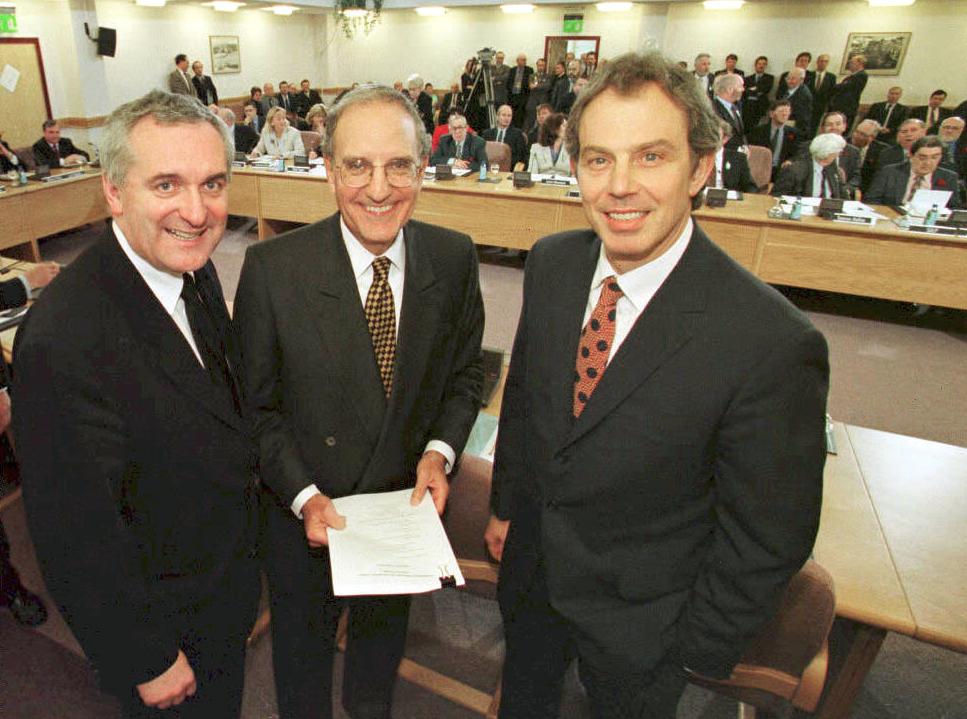
Blair was asked if he agreed with Jonathan Powell, his chief of staff, who described 10 Downing Street as being extraordinarily ill-suited to being the headquarters of a modern government. “I agree with him about the completely absurd, shambolic organisation of the Downing Street building, which was a house. You would never in a thousand years design a centre of government like Downing Street. There is actually a strong case for shifting it. I was constantly told that it was a health hazard, and that the electrics could blow up and set the place on fire at any moment.
“Every time they would put to me – it was a classic civil service thing – they would give you this proposal, which would say we’re going to redo the whole thing and it is going to be absolutely magnificent, and it’s going to be about £800m, which we’re sure the public will think is very well spent on you rather than on them, on the health service or education, so I thought, ‘I can’t do that.’”
Another student asked whether his disagreements with Gordon Brown were constructive or destructive. He said: “Mostly constructive; towards the end it was more difficult, although even then the compromises you were engaged in were sometimes necessary. Politics is a difficult business at a certain level, because I used to say to my own people who would complain about it from time to time, ‘Look, people are entitled to want your job.’ That’s the way it is, and in politics it tends to be quite a long list.
“I always say this to people, and I mean it: in the end, Gordon was a huge strength to the government. He is someone of phenomenal intellectual capability. If he was sitting here talking to you, you would be very impressed. And it’s important to say that. Because if you compare him today with what is in government, I think he stands up pretty well, in terms of ability, heft, capability, getting things done.”
But Blair also related his relationship with his chancellor to the argument for a “big tent” progressive coalition: “The other thing to remember is that no Labour government had lasted more than six years, and we lasted for 13, so we lasted for twice as long as the previous Labour governments. Partly that was because we brought the disagreements inside the tent. So even though he and I were at points disagreeing about things like health and education reform, law and order reform, we managed to sort them out inside the tent.
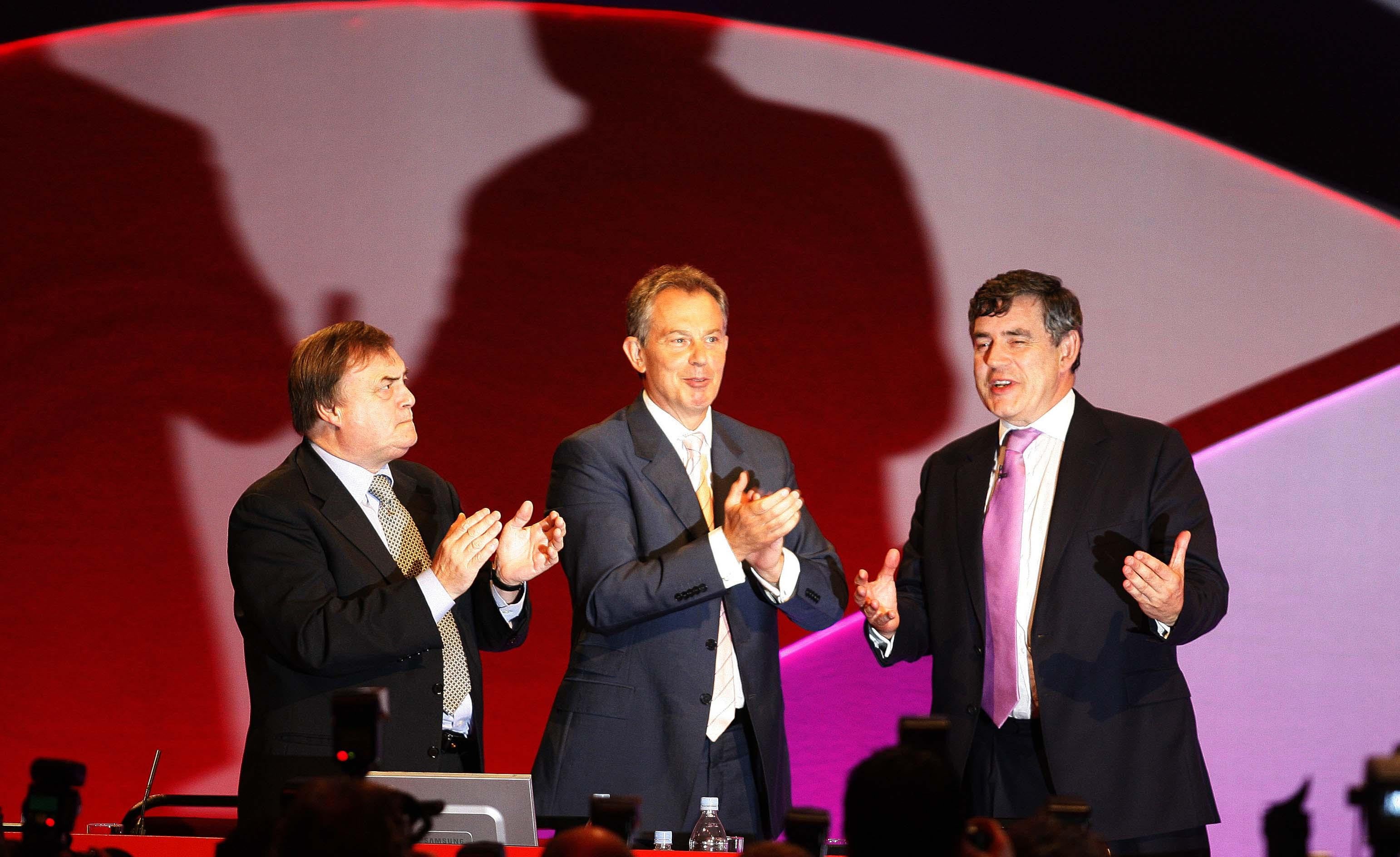
“Whereas if you look at previous Labour governments – I mean, now people rewrite the history of this: everyone thinks that in the Attlee government, everyone got on, and everyone thought Clem Attlee was fantastic. No they didn’t; the first thing they did when Labour came into power was to try to get rid of the guy. And then there were big resignations from the government that really undermined it, and in 1951, despite all the things the Labour government had done, it went out of power and stayed out of power for 13 years.”
Another student asked: “Was there anything about Gordon Brown’s premiership that surprised you?”
Blair gave a shorter answer: “I don’t mean this in a bad way, but not particularly. It didn’t surprise me that in the end he lost, but it didn’t surprise me either that at the height of the financial crisis he played a pivotal global role. That was the two different sides of it. I don’t think that I was surprised by either the challenges or the achievements.”
He was asked about one of the themes of the class on “The Blair Years” this year: the role of key women in his government. “We made a lot of change. There was a vastly increased cohort of women MPs when we won in 1997; more women in cabinet; the first women to be chief whip [Ann Taylor, followed by Hilary Armstrong and then Jacqui Smith] – they were more polite but more ruthless than the male chief whips; and Margaret Beckett, the first female foreign secretary.”
I think it’s important to state what we mean by liberal interventionism, because it – and I am partly responsible for this – has come to mean something that is purely based on idealism, or based on globalism
There were also women in critical backroom positions, such as Anji Hunter, who worked in Blair’s office during his first term and who spoke to our class at the start of term, and Sue Nye, who worked for Brown. “Neither of them is as nice as they look,” Blair said. “Both of them are very tough, very direct; they got on with each other, and we needed a conduit which made up for, occasionally, what was the distrust between the principals. They had absolute trust all the way through. You need people around you who have a real feel for small ‘p’ type politics.
“You get a lot of people who are big political thinkers, and that is necessary and important, especially in government, but you also need people who are just kind of operators. And I was never very good at it, to be honest, but they were absolutely brilliant at it. They would just manage situations and people. Anji and Sally [Morgan, who also came to our class this term] were incredibly important in dealing with the Parliamentary Labour Party and bits of the media.
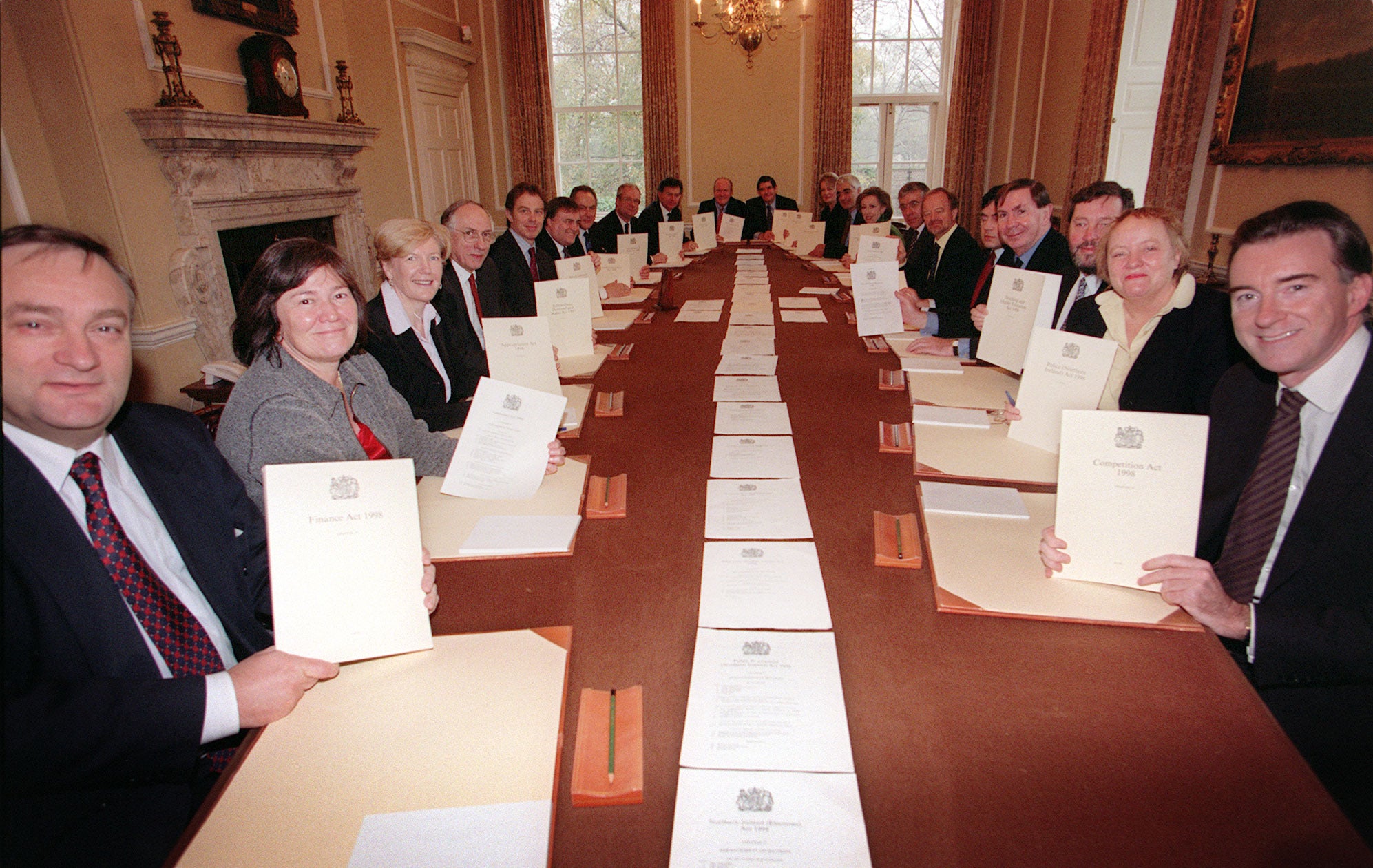
“You need people, especially [because] when you are in these positions of leadership, you just don’t have the bandwidth or the time to keep what I call gruntling people, because when they are disgruntled that’s a big problem. That’s why you need to gruntle them. You need gruntlers.”
Several of the students asked him about his legacy. Had he, for example, conceded too much ground to the Conservatives on the issue of immigration in the 2005 election? He said: “It was very obvious before the 2005 election the Tories were going to fight it on immigration, and it’s an interesting political lesson, because I used to have a lot of discussions in the cabinet and in the Labour Party where people would say, ‘Let’s not get into this immigration thing; there are no votes in that for us; we’re basically pro-immigration.’
“And I used to say to them: ‘The thing about politics is you always get to decide the answer, but unfortunately you don’t always decide the question.’ The public has a say in that; your opponents have a say in that; the media has a say in that. And immigration is an issue for people.
“I always took the view that you divided people who were anxious about immigration into two: there are people who are anti-immigrant – no point in trying to get them – but there were other people who were just anxious because the community was changing, the world was changing, and they need reassurance. So before the 2005 election, I said we’re going to deal with the question of immigration: the biggest thing is people being here who aren’t entitled to be here, so we had the identity card question. And today I think biometric ID is just a sensible thing to do, and governments are starting to do it around the world.
“The thing is to have an answer. So I would say, ‘We’re not exploiting immigration – that’s what Michael Howard’s doing. We’ve actually got an answer to the legitimate concerns, whilst making sure that we keep immigration as something that is strengthening the country over time and bringing enormous benefits, which it has.’ Michael Howard, the Conservative leader, was running around saying, ‘Labour are afraid to talk about immigration,’ and what was that phrase he had? ‘Are you thinking what I’m thinking?’
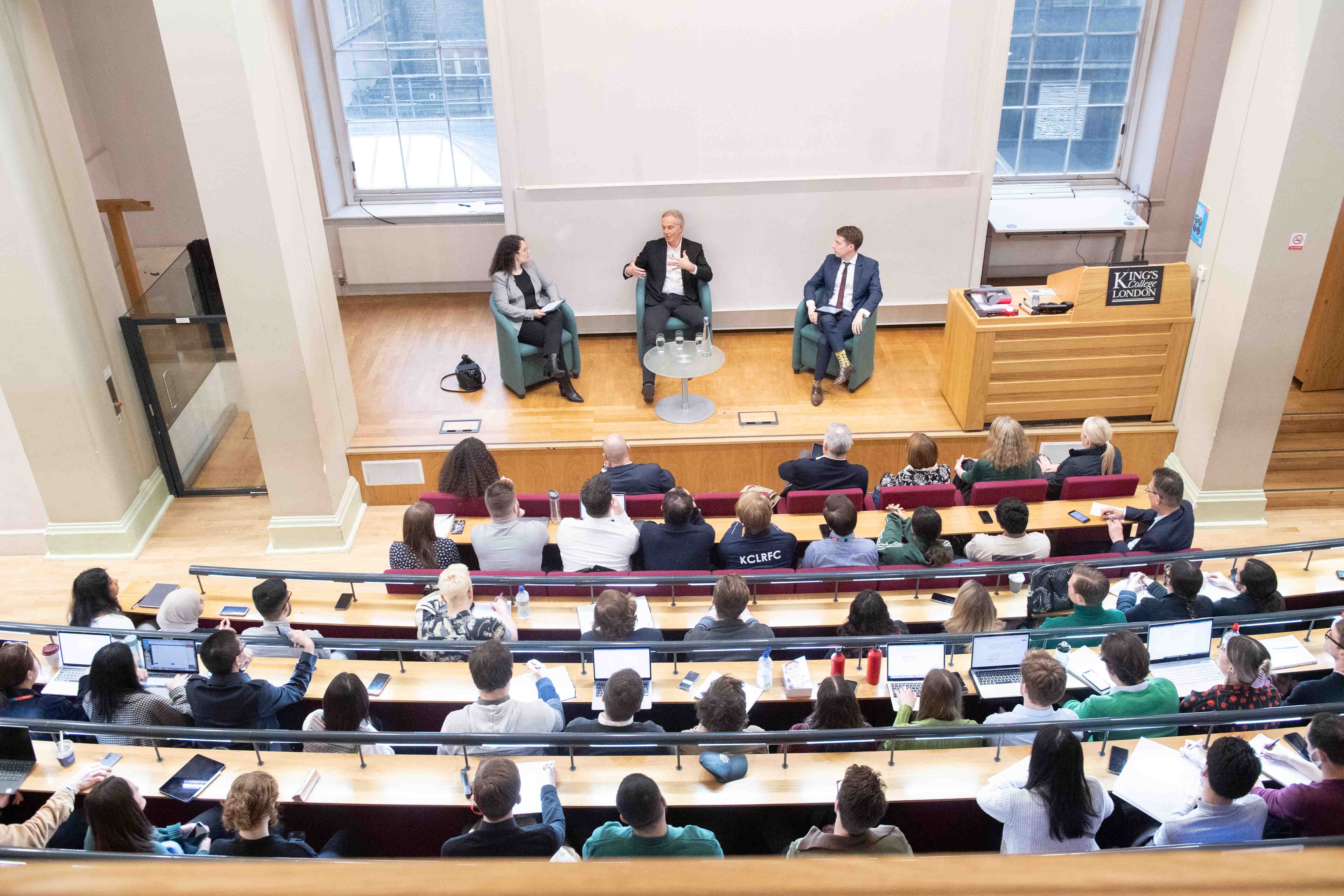
“So I would say, ‘No, I’m talking about it, but I’ve got an answer to it; you’re just trying to exploit it.’ And in the end they had to come off it in the election campaign; it just didn’t work, because we were confident enough to have an argument about that. But if I’d tried running from that it would have become a big issue.
“When, after I left and partly because of our changes, we had a far greater influx of freedom-of-movement people coming from Europe – which I don’t regret at all, by the way, because I think they’ve brought enormous benefit to our country – but if I had still been in office when I could see this problem arising, I would have been trying to deal with it.
“Immigration is one of these things – and I think Joe Biden’s discovering this in America too, and Kamala Harris – you can’t just let it sit out there. Because if it does, there are populists on the right who are going to exploit it in an evil way, and what I used to say to people is: ‘You’ve got to have a system with rules, otherwise you get prejudices.’ We want rules and we don’t want prejudices.
After Kosovo, Sierra Leone, Afghanistan and Iraq, another student asked what the war in Ukraine meant for the future of liberal interventionism. Blair’s answer was that Ukraine proved that the alternative to “liberal intervention” was not “no intervention” but “illiberal intervention”.
He said: “I think it’s important to state what we mean by liberal interventionism, because it – and I am partly responsible for this – has come to mean something that is purely based on idealism, or based on globalism, which today seems to be an insult, and really the argument behind it is this: that in an interdependent world, it actually matters what happens elsewhere, and if you get chronic instability in one part of the world it is going to affect your own country and your own interest ultimately.
If we’re not doing things in the world, it is not as if no one else is. Because they are, and in the end, if you want to defend your values and your interests, you’ve got to be prepared to stand up for yourselves
“Today – and there is no getting away from it – there are two competing different value systems. First of all, the world has changed dramatically, in this sense: that the west is no longer the centre of the world; there are other poles of the power in the east, and the geopolitics of the 21st century will be dominated by the rise of China.
“You’ll have India, which in time if it sorts itself out will become the third big giant in the world; and all round the world you’re getting regional groupings, like Asean in southeast Asia, which will be building influence. Now, some of these countries are aligned with our value system, but some of them plainly aren’t. Therefore, if we’re going to defend our values and our interests, you’ve got to be prepared to be out there in the world.
“A lot of people think what gave liberal interventionism a bad name was what we did post-9/11, in Iraq and Afghanistan; but take what you wouldn’t call liberal interventionism, what you might call illiberal interventionism, that Russia has been engaged in over a pretty long period of time, roughly the last 15 years or so. Take Africa: [the Russians] have moved in in a big way. They are now very influential in several African countries. Obviously they are very influential in the Middle East.

“In Syria, by contrast with Iraq and Afghanistan, they held through 11 years of intervention, despite the fact that the person they were propping up was killing their own citizens, using chemical weapons. And so when people debate liberal interventionism, it is not as if, if we’re not intervening anywhere, someone else is not doing something.
“Other people are intervening. China does it much more through soft power, it’s true, although they have increased military spending dramatically. ‘One Belt One Road’, which is their play across a whole swathe of Asia, is a massive soft-power engagement. I think it will become apparent in the next few years that, in certain areas of technology, China will be superior to America. It is a different value system, and I quite like our value system.
“If we’re not doing things in the world, it is not as if no one else is. Because they are, and in the end, if you want to defend your values and your interests, you’ve got to be prepared to stand up for yourselves. And I think Ukraine has brought that home to people. I’ve got a project in Ukraine with the institute; I go there every year; you’ve got a whole cadre of young people there, who are Europe-oriented, really smart, want to get connected to the world, and they’re presently being crushed. Now, if we let that happen, OK, but you are giving a message to the people who are opposed to our value system that we are really not prepared to defend it.”
Finally, he was asked what he meant by his recent warning about Britain “slipping into a lower league”. He said that “when you study government” you realise that you need “a backbone of consistency in policies and attitudes”, despite changes in government, to “allow a country to move forward”.
He said: “I didn’t undo a lot of the Thatcher reforms on privatisation; we didn’t put the top rate of tax back up to where it had been when I was growing up, which was over 80 per cent. What we did was to regard our job as rebuilding the public realm. There was a consistency of policy toward the private sector, which allowed us very high levels of economic growth.
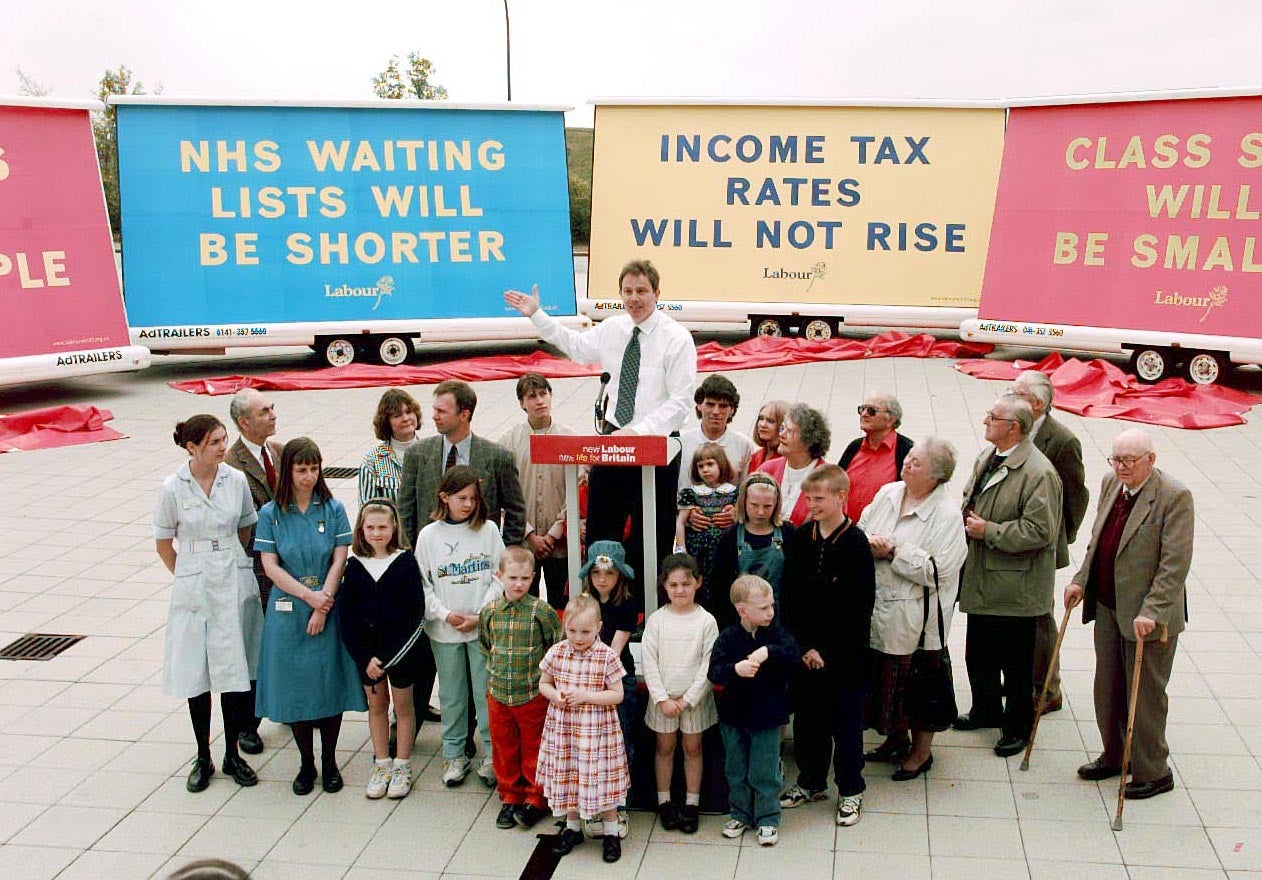
“Likewise, when we came in we made big social change. People forget this now, but Tories would fight elections against gay rights and against the minimum wage. And by the time we’d ended, David Cameron was championing marriage between people of the same sex, and on the minimum wage we were fighting over who would raise it most. So there is a consistency of policy.”
The problem in the west over the last 10 to 15 years, however, has been the rise of populism, he said, which in Britain took the form of the rise of Nigel Farage and Jeremy Corbyn that he failed to foresee. “Farage ultimately pushed the Tory party to become a Brexit party, and we got Brexit, which I still think is a huge, huge challenge for the country. And Jeremy Corbyn took over the Labour Party. The result of that was that all that consistency went, and you got a full-on fight between fringe populists, coming out of the fringe and into the mainstream. And I think it has had a really deleterious effect on our politics. Likewise in America.
“For the west, what that has meant is that we are weak at a crucial time. So for the UK you have got to reassert a strong centre in its political life, which is looking for practical, evidence-based solutions – for example, taking the technology revolution, which I think is the single biggest real-world event going on, and saying, ‘How do we harness that for the public good?’ And not having a 1980s debate, for example in healthcare, about who spends a bit more and do we hire extra nurses and doctors. But [instead] saying, ‘How does technology transform the way we do preventive health and public health, and the way we organise our healthcare system?’
“My worry about Britain is we’re going through three revolutions: Brexit, which is a revolution – not one I like, but it is there; climate, where we’ve got a huge ambition; and by the way, one of the things this Ukraine crisis is going to do is people can be very supportive of what’s happening now, but believe me, when this cost of living crisis really starts to squeeze, you’ll find that there are elements on the right who make climate change a big problem for us politically.

“And finally you’ve got this technology revolution. And my point is that the real problem with the country is not Partygate, it is the absence of a plan, and the absence of a political class that’s capable of thinking through these big, big challenges which are going to determine the future of the country and getting the right answer. Which is really nothing to do with the politics of either Farage or Corbyn.”
Tony Blair was talking to postgraduate and undergraduate classes studying ‘The Blair Years’, ‘The History of the Prime Minister 1979-2019 – in partnership with 10 Downing Street’, and ‘Prime Ministers and Leadership Since Thatcher’ at King’s College London on 16 March




Join our commenting forum
Join thought-provoking conversations, follow other Independent readers and see their replies
Comments